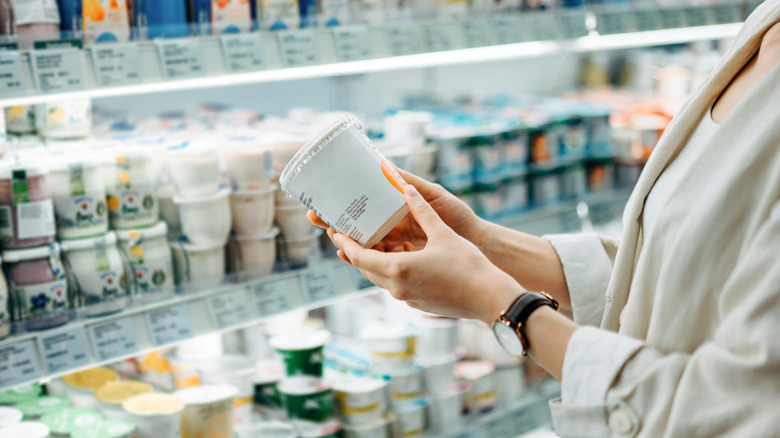Why You Don't Need To Avoid All Processed Food
Processed foods have caused some general concern over the years as consumers have more closely examined the many ways ingredients are manipulated from their raw state before becoming a final packaged product. But the concept of processing food is simple — it's just any food that's been altered at all. If you've washed your lettuce, it's now processed. If you've sliced an apple, it's processed too. Therefore, anything that's been adulterated from its natural state counts as processed, and that includes food that has undergone cooking, cleaning, manufacturing, and all methods of manipulation of the initial product to something we eventually end up consuming.
So when you think about it, even cooking a simple steak at home counts as processed food, since the meat has already been butchered from the cow. Even though you may just be adding something as simple as salt before you cook it, again, you're continuing to process the product, albeit in a very simple way. And some processing procedures are meant to protect you from potential germs — pasteurization exists in order to eliminate pathogens that can potentially make you sick, which is why drinking things like raw milk comes with risks. As such, the concept of processed food isn't necessarily a bad one in many cases.
There is a difference between processed and ultra-processed foods
People are currently taking the most issue with a subcategory of processed foods called ultra-processed foods, which, even when consumed in small amounts, are linked to the risk of early death. Since processing can include something as simple as chopping to something as complex as chemical extraction, you can consider ultra-processed foods the types that have ingredients that you generally don't find on their own in nature. This includes many kinds of artificial colors, refined starches, trans fats, emulsifiers, and preservatives. You'll generally be able to identify them by, well, not being able to identify exactly what they are. If it sounds like there's a chemical in your cookie's long roster of ingredients, it probably is one.
But then again, not all processed foods are necessarily going to raise an eyebrow. Cheese, by nature, is processed using many different methods, and none of us can complain about the delicious end result. The methods of canning, freezing, drying, or freeze-drying fruits, vegetables, and legumes actually preserve much of the nutritional benefits of the ingredients. This processing often makes ingredients more accessible, easier to prepare, and extends the shelf lives of food that would ordinarily go bad quickly. So when it comes down to it, processed food doesn't have to be a scary foray into the unknown; you just have to know what's happened to your food — and to what degree.

